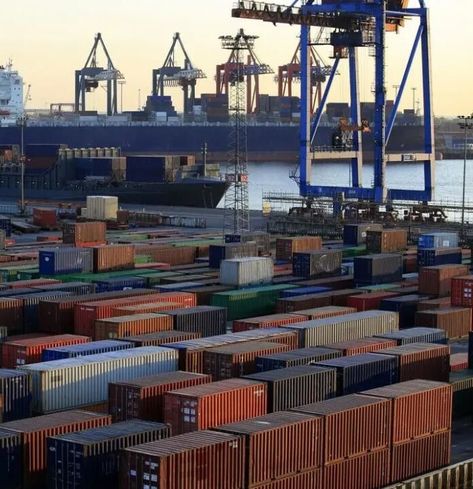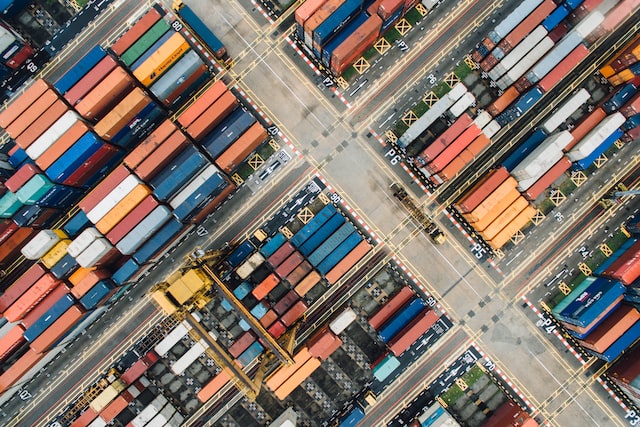Logistics is the term used to describe the activities and systems involved in moving goods from one location to another. It encompasses everything from stocking warehouses to coordinating deliveries. In this blog post, we will explore some of the most common terms used in logistics and how they can help you optimize your business operations. From transportation to warehousing and more, this article has something for everyone involved in logistics.
A carrier is a business or individual who has the legal authority to move products by land, water, and air. In most cases, the carrier collaborates with shippers to move products from one location to another. There are two primary categories of carriers or delivery methods: common carrier and private carrier. A common logistic service is a transport provider who offers his services to everyone as long as he is authorized to do so by a license issued by a regulatory agency. The fact that the common carrier is not constrained by a contract allows him to work with many shippers on the same day. A long-term contract carrier is a business or individual that offers transportation services to a specific shipper.
The logistics industry is one of the largest and most important in the world. It plays an essential role in the global economy by ensuring that goods and materials can be transported from where they are produced to where they are needed. The sector employs millions of people around the world, and its activities have a significant impact on society as a whole.
Logistics refers to all the activities involved in moving goods from their production point to their final destination. This could involve everything from shipping goods by sea or air to loading them onto trucks for transport. The logistics industries is highly specialized, so it relies on a wide range of specialist skills and knowledge.
There are many different types of logistics operation, each with its own unique challenges and opportunities. Some common types of logistics include supply chain management, international trade, transportation, warehousing, and retail distribution. The logistics sector is always changing, so there is always room for new businesses to emerge and compete in the marketplaces.

The history of logistics can be traced back to ancient civilizations such as the Egyptians who developed a method of preserving food by drying it. The Romans were particularly adept at transporting goods and became one of the world's most powerful empires. In medieval times, transportation networks were sparsely populated and unreliable, so goods often had to be shipped over long distances on beasts of burden.
During the Renaissance, new methods of transport were developed, including the horse-drawn cart and navigable river boats. The Industrial Revolution saw the rise of mass production and transportation relied on machines to move goods more efficiently. In the late 19th century, railways came into use and shipping became increasingly mechanized.
In World War II, there was a need for faster shipping to support military campaigns across Europe and Asia. This led to the development of containerization in the 1950s which revolutionized cargo handling. Today, logistic carriers is an essential part of modern business and is responsible for moving millions of items each day around the world.

The logistics industry is constantly evolving and expanding as new technologies are developed. There are many different types of logistics, each with its own unique set of requirements and challenges.
Traditionally, logistics has been divided into two sectors: primary and intermediate. Primary logistics focuses on the acquisition or procurement of goods, while intermediate logistics deals with the transportation and delivery of those goods to their final destination. However, these traditional distinctions are becoming increasingly blurred as businesses seek to outsource more tasks to third-party providers.
Today's logisticians must be able to handle a wide range of tasks, from planning and organizing deliveries to performing market research and tracking inventory. They must be able to assess risks, manage resources efficiently, and stay ahead of rapidly changing trends. If you have a passion for technology and want to be in the forefront of change in an ever-growing industry, consider pursuing a career in international logistics.

The impact of logistics on businesses is enormous. In fact, it can be said that without good logistics, businesses would not be able to function. Logistics is the process of moving products and materials from one point to another, and it has a huge impact on business. Here are some of the key reasons why:
1. Logistics affects every aspect of a business.
From procurement to production, logistics impacts every part of a business. By ensuring that products arrive at their destination on time and in the correct condition, logistics helps keep businesses running smoothly.
2. Logistics drives efficiency.
Logistics ensures that products flow efficiently through supply chains, which leads to increased productivity and cost savings for companies. This is especially important as global competition increases in intensity year by year.
3. Logistics forms the foundation of a successful business model.
In order for companies to remain competitive, they must rely on efficient and effective logistical systems. A sound logistical system allows businesses to focus on their core competencies while taking care of all the necessary details related to product delivery. This sets them apart from their competitors and ensures long-term success for any company involved in logistics.
Matic Express was established in 2007 and the headquarters are located in Shenzhen China, Changsha Chaintech Supply Chian Management Co, Ltd is a subsidiary located in Changsha China, our main business is air & sea shipping, express, railway, or truck shipping with DDP, DDU, FCL, or LCL terms. We ship goods to Amazon warehouses.
Matic Express provides freight service to global Amazon through sea shipping, air shipping express international railway express and truck shipping. Our service area covers USA, Canada. France, Germany. Poland, Italy. Spain, Japan. New Zealand. etc. Delivery, pick up and delivery, Amazon label, placing, booking and clearance of customs. Local delivery right to your doorstep.
Matic Express offers door to-door shipping from China, including rail, air as well as sea freight.
Matic Express owns warehouses that can store your goods. Our warehouses are located in Shenzhen Yiwu Ningbo Shanghai Guangzhou Guangzhou Dalian, Chongqing and Guangzhou. We collect it up from the warehouse. We can accept cargo from your suppliers and you. We offer services to you such as inspections of cargo & logistics, stickers, the measurement of weight or size, and delivery.
The logistics industry is a $2 trillion global business, with projections of continued growth. With such a large potential market, there is no shortage of opportunities for businesses to capitalize on the growth of the logistics sector. In this article, we explore some of the key trends that are shaping the future of logistics.
Digital Transformation: The ecommerce logistics Industry Is Adapting Quickly To Change
Logistics has always been a digital-driven industry, but recent trends are driving this point home even more. According to Forrester Research, 75% of all freight will be delivered digitally by 2020. This shift towards digital delivery means that businesses must adapt their processes if they want to keep up. Constant innovation in technology creates new challenges for companies operating in the logistics sector, but it also presents tremendous opportunities for those who can take advantage of it.
One example of how digital disruption is impacting logistics is through truckload shipping. Traditional truckload shipping used to involve a single driver driving around the country delivering cargo from shippers to receivers. However, with the advent of container shipping, which uses large containers that can hold multiple loads, truckload shipping has become obsolete. Now, shippers use container shipping to transport goods across oceans and continents. This change has forced truckload shipping companies out of business and created new opportunities for companies that specialize in container shipping.